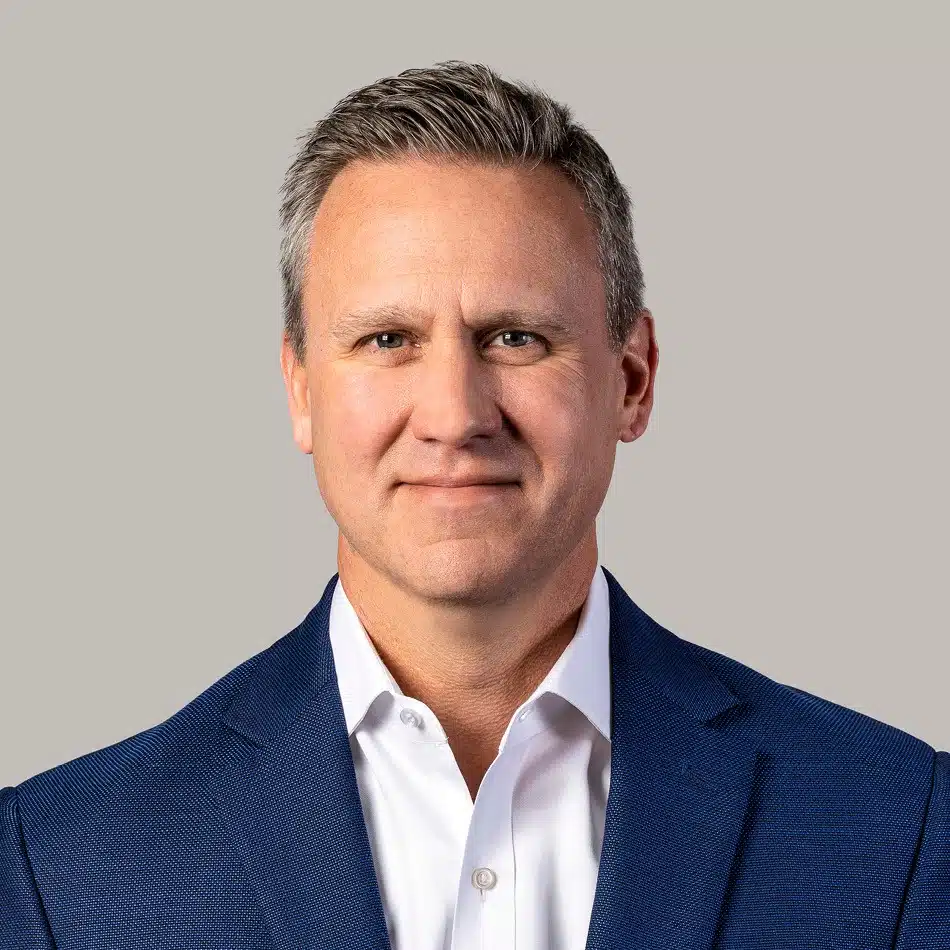Industry: Healthcare & Life Sciences
Artificial Intelligence (AI) is revolutionizing the healthcare industry, transforming how a variety of medical conditions are diagnosed, treated, and managed. From enhancing diagnostic accuracy to personalizing treatment plans and streamlining administrative tasks, AI is driving significant advancements in patient care and operational efficiency. This series will dive deep into how leading organizations are leveraging AI to shape the future of the healthcare landscape, as well as the challenges and opportunities that come with integrating these cutting-edge technologies.
Chuck Egoville, Managing Partner at JM Search, and James Gates, Partner at JM Search, sat down with Christine Oliver, CEO of Beaconcure, a clinical data technology and automation company, to learn about how Beaconcure is utilizing AI to transform the clinical trials landscape.
Chuck: Why did you join Beaconcure? What excites you most about the organization?
Christine: I was attracted to Beaconcure’s focus on biometrics, an area that has traditionally lacked innovation. The platform, Verify, was a key factor in my decision, as I wanted to work for a pure tech company with a scalable platform rather than a services company. I believe Beaconcure’s timing aligns perfectly with current human capital trends, such as labor shortages, increasing labor costs, and employees’ desire for value-based work. The tool’s ability to work alongside skilled labor, automating repetitive tasks and allowing professionals to focus on more interesting aspects of their job, really appealed to me. I was also impressed by the motivated and collaborative team at Beaconcure.
James: What problem are you solving with Beaconcure? How does it relate to both patients and drug developers?
Christine: Beaconcure’s flagship product, Verify, is a biometrics Platform that manages the workflow and QC for statistical analysis and reporting deliverables for companies in the biopharmaceutical industry. It is a combination of task tracking, communication, collaboration, data insights, and anomaly detection tools. The primary benefit is decreasing the time and cost for study deliverables in biometrics, which helps complete regulatory submissions and get drugs to market more quickly.
For example, we had a significant impact on time reduction when working on the Covid-19 vaccine with Pfizer – processes that used to take nine months were completed in days to get the vaccine to the public sooner.
James: It’s amazing that you were able to make such a significant impact when it was needed most. Are there other companies solving the same or similar problems to Beaconcure?
Christine: No other company is solving the problem exactly as Beaconcure does. Our biggest competitor is Microsoft Excel. Although change management is a significant challenge, current market conditions in human capital are creating a ‘forcing function’ for change, as there are increased layoffs and more data with fewer people to process it. These market conditions are compelling people to adopt new methods and technologies to manage their work more efficiently.
Chuck: Absolutely. We’re seeing similar trends across the board as well. The pressure from market conditions—whether it’s labor shortages or cost constraints—is definitely pushing organizations to rethink their processes. Pivoting slightly, what do you see as the near-term challenges and opportunities for Beaconcure and the AI it utilizes?
Christine: Change management is the biggest challenge. It’s a puzzle. We need to look at the way each customer is working and help them see how this fits into their process. While the software is the same for each customer, the process fit is unique.
As an opportunity, Beaconcure has a quicker time-to-value compared to other AI implementations, and our clients can see benefits within weeks of identifying a study. As we work with more data and the algorithm learns, we will continue to improve operational efficiency and create more value for customers.
James: So, what’s next for the business? Do you have any exciting things that you can tell us about the product or how you plan to grow?
Christine: In the short term, we plan to go deeper vertically in the biometric space, providing customers with a unified, statistical analysis platform for cross-functional communication and task management. Our strategy involves moving upstream from workflow management and anomaly detection to incorporating generative AI for producing outputs from data.
Chuck: As we close out our time together, I would love to get your thoughts on the limitations of current AI technologies in health care. What can we do to overcome these challenges?
Christine: The biggest challenge for AI in healthcare is the quality and quantity of data, adhering to the principle of ‘garbage in, garbage out.’ In the context of clinical trials, I see the need for more standardization to effectively apply AI tools. While some standardization exists due to FDA regulations and clinical study reports, there is still a lack of uniformity in many areas. The ‘Wild West of data’ makes it very difficult to apply AI effectively in healthcare, however increased standardization could help overcome this limitation.
Chuck: That’s a great insight. Thank you, Christine, for taking time to share with us today!
To learn more about Beaconcure and its capabilities, visit www.beaconcure.com.
Insights in your inbox
Stay up to date on the latest trends and insights shaping the executive search landscape from JM Search’s Blog.

